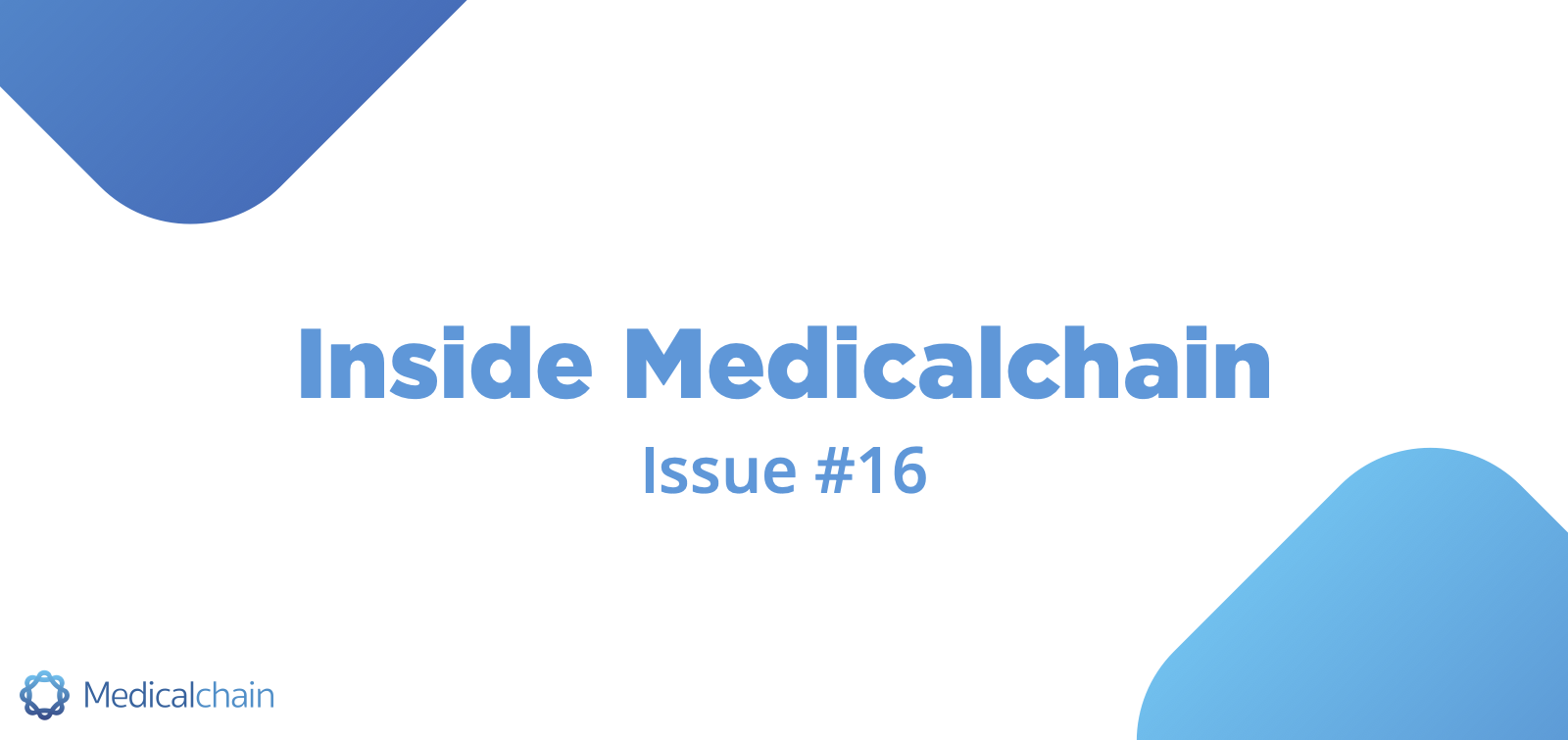
Welcome to the sixteenth issue of Inside Medicalchain, our monthly newsletter to keep our community up to date.
If you missed the fifteenth issue, you can catch up by clicking here.
Product Development
In our last issue, we made the very exciting announcement of our MyClinic.com V2 release! If you missed it, you can download the demo app from the iOS and Google Play stores.

Since our last edition, we have now made our Android app available globally and we have subsequently released several minor updates to fix issues that our users were experiencing.
As ever, we would really appreciate any feedback you can give us to provide the best possible application for our users. Send in your comments to [email protected]
Media
Our CEO, Dr Abdullah Albeyatti, gave a great talk on “Democratizing Health Care” for the HIMSS Blockchain in Healthcare Task Force agenda! Amongst other things, he covers national healthcare spending, healthcare infrastructures, health data open standards and our story at Medicalchain. You can check out the talk here.
We’ve recently been featured in Forbes, as a company showing how blockchain can be used to share records securely!
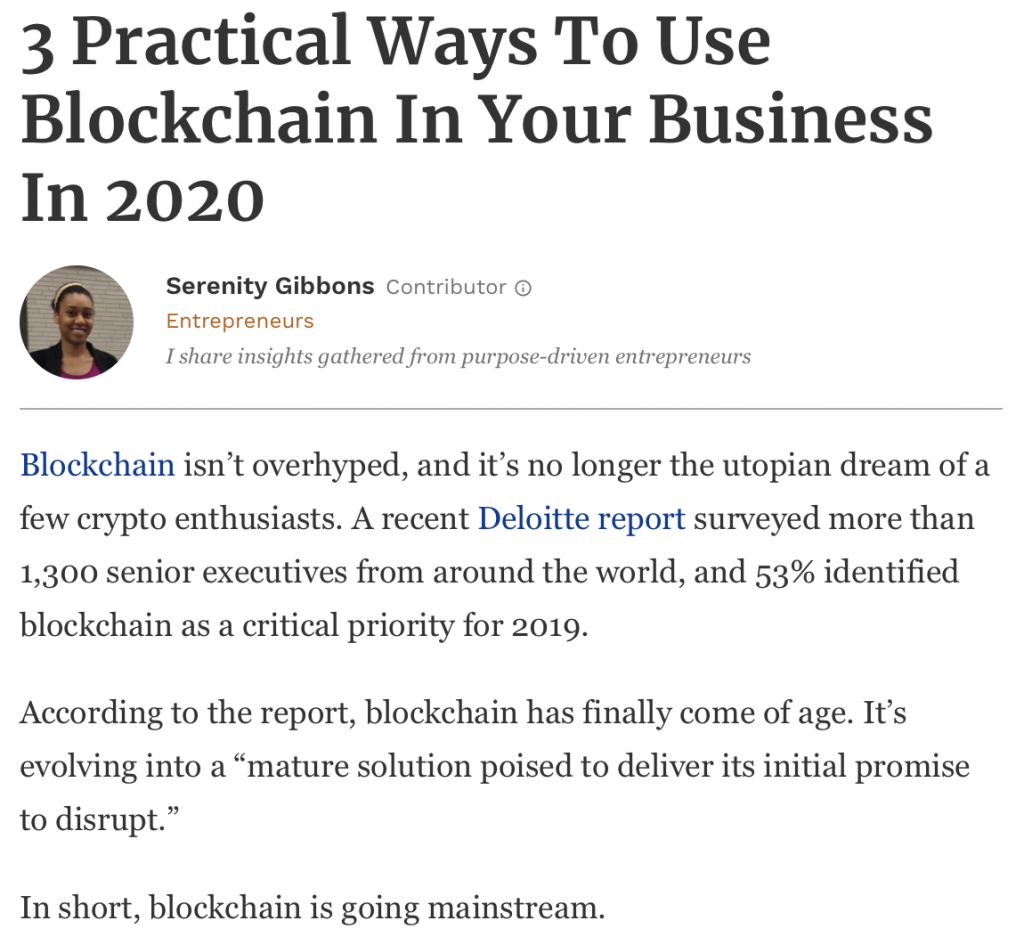
Inside perspective
As always, this section aims to provide an insight into the project, including the people behind the scenes who are working extremely hard to make our vision a reality.
At Medicalchain, we really want to disrupt the electronic health record industry. As such, we need the very best health-informations on board with us to make our vision a reality. Not only must they have the technical background, but also the insights into how to pave a way forward to a future where health records are secured whilst are able to be used flexibly. This is why David Ebbitt, our Health Informatics Manager, is so essential for our work here at Medicalchain.
We asked David some questions so you can learn a little bit about him and his work here.

1) What is your professional background and experience?
Following university (a Psychology degree from London University) I trained as a computer programmer and did my time as a hands-on techie before moving on to project and senior management roles. I’ve been fortunate to travel widely with my job including 4 years in Papua New Guinea and various assignments in France, Germany and India. I also caught the entrepreneurial bug as co-founder of a new insurance company.
Much of my time has been in the financial sector however I spent a very interesting 3 years, from 2003 to 2006, as Head of IT at a large NHS hospital trust in the North of England — this was an eye-opener to the problems of the lack of interoperability between the many systems, both within the hospital and across to community services, social services and mental health. It was surprising and troubling, that healthcare was lagging way behind other sectors in its ability to exploit IT to deliver high quality of service to its “customers” (aka patients).
4 years ago I finally jumped off the corporate treadmill and was not too surprised to find that, despite the valiant efforts of a core of healthcare Informatics folk, the problem of lack of interoperability had not been solved. Indeed, the proliferation of a quarter of a million apps had created many more silos of unconnected data. Hospitals remained in the grip of the big EHR suppliers whose business model still appeared to centre around lock-in to their proprietary data structures.
However, two new developments pointed the way to breaking the logjam: open health data standards and blockchain technologies. Over two years ago I started developing a “proof of concept” based on these with a focus on putting the patient in full control of their health data.
2) What made you want to work at Medicalchain?
My “proof of concept” project was progressing well, however, I’d had not been successful in raising funding to take this idea forward to production status. Then I came across Medicalchain, a new entrant who were similarly working on a personal health record enabled by blockchain but who, importantly, had successfully raised funds through an Initial Coin Offering (ICO). Medicalchain had a strong core team of medics and developers and we’re looking for somebody to bring a health informatics background. To say there was a “meeting of the minds” would be an understatement and I was delighted to join the Medicalchain team almost 2 years ago.
3) What is your role as Health Informatics Manager at Medicalchain?
My role is to work closely with the Medicalchain clinicians and developers, providing guidance from health IT (aka “informatics”) perspective. I think, perhaps, my most important contribution has been to lead on the adoption of the open health data standards. Plus I’ve been around for a good long time in both corporate and entrepreneurial settings — so hopefully my experience brings some added value. And I’ve enjoyed participating at conferences and digital health forums both as panellist and speaker.
4) Are you optimistic about the future of Electronic Health Records?
The present landscape of EHRs would not give much ground for optimism. The sector is dominated by a small number of large incumbent suppliers who have been content to build ever more complex, centralised and vastly expensive monolithic solutions, built on proprietary data structures; they have been happily milking their legacy cash cows for many years.
The convergence of open health data standards and blockchain technology does, in my view, create a new opportunity to break the logjam and move towards an open ecosystem of healthcare systems centred around the patient. As with most revolutions, it will most likely not come from within the mainstream established order — new entrants, such as Medicalchain can build solutions unconstrained by legacy considerations and gain the benefits of emerging technologies (particularly blockchain!).
5) What are the new, emerging standards and why do you think they are so important?
There are two open standards which are key to solving the problem of health data interoperability:
HL7 FHIR (Fast Health Information Resource) is the latest technology from the international non-profit HL7 organisation which has led global healthcare interoperability efforts for several decades. FHIR provides a common language, expressed as “resources” and “profiles” for the exchange of data between incompatible systems. It is being widely adopted internationally and has been mandated by the NHS as a national standard for all suppliers in the UK.
The non-profit openEHR organisation provides a model for the persistence of clinical data with the clinical community developing “archetypes” for the persistence of clinical data and “templates” for their usage in specific care settings. openEHR lends itself to the storage of health data in “one lifetime”, vendor-independent, person-centred EHR. The semantic nature of the data model means that data designed around openEHR archetypes and can be easily shared across systems and used for analysis.
The two standards are complementary with their respective focuses on data transfer and data storage. Blockchain technologies then provide the strengths of a distributed ledger and cryptographic to control identities and data access. and immutability to manage identity and patient consent. All of which adds up to, in my view, a potential game-changer!
Events
Our CEO, Dr Abdullah Albeyatti joined international thought leaders in digital health at the Kuwait Digital Health Conference! Here is a photo of him with Kuwait Ministry of Health Leads.
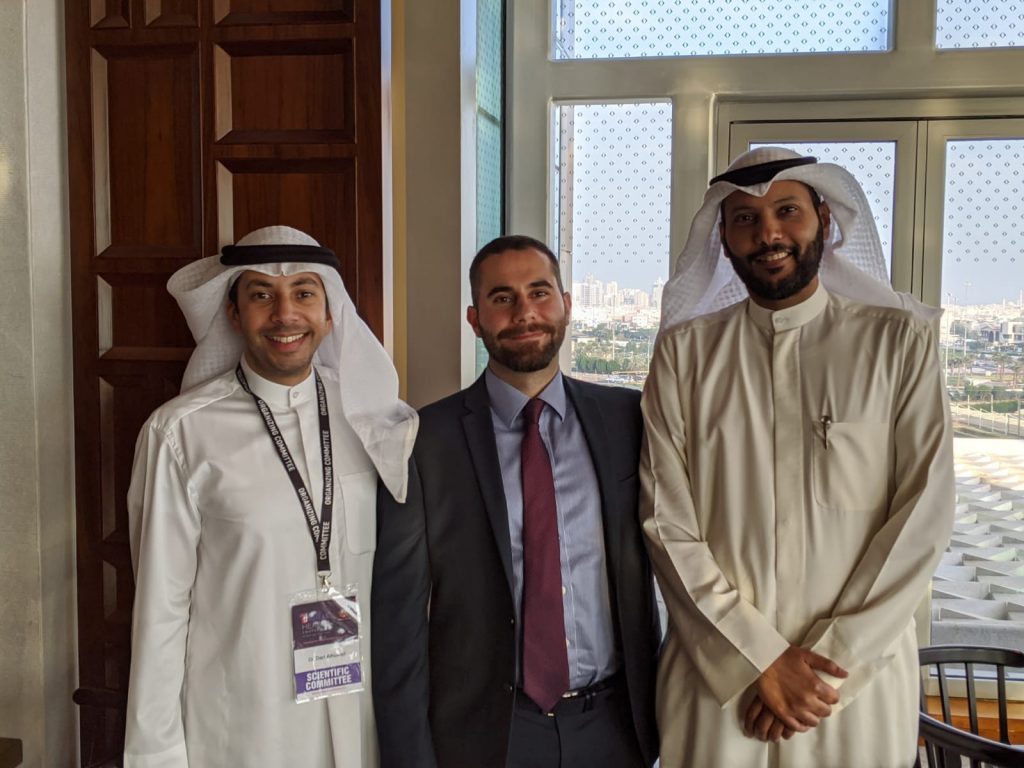
Following Kuwait, Dr Albeyatti spoke at the Healthcare+ Expo in Taiwan! A brilliant event where he shared our work at Medicalchain with Technology leaders in Taiwan.
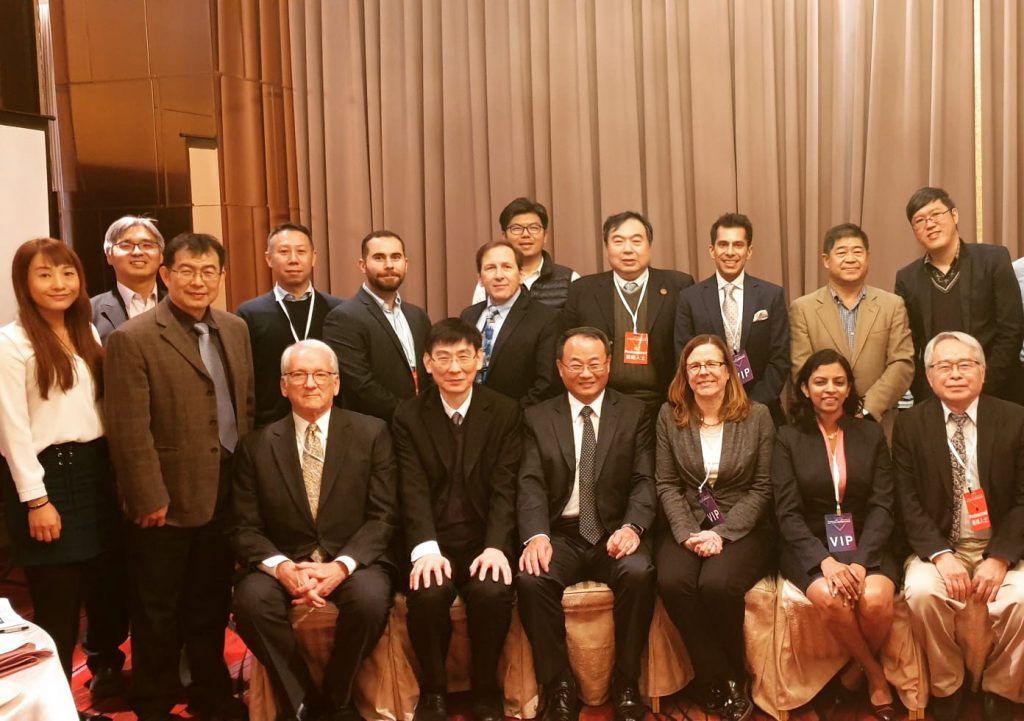
Over the same time period, our Research Fellow Dr Danyal Akarca, was in Monaco at the BAPRAS Winter Scientific Meeting 2019 on the Research and Innovation panel discussing blockchain-secure health passports. His talk is titled “Patient-centrism in an age of AI: how to empower patients and enable ethical digital health”.
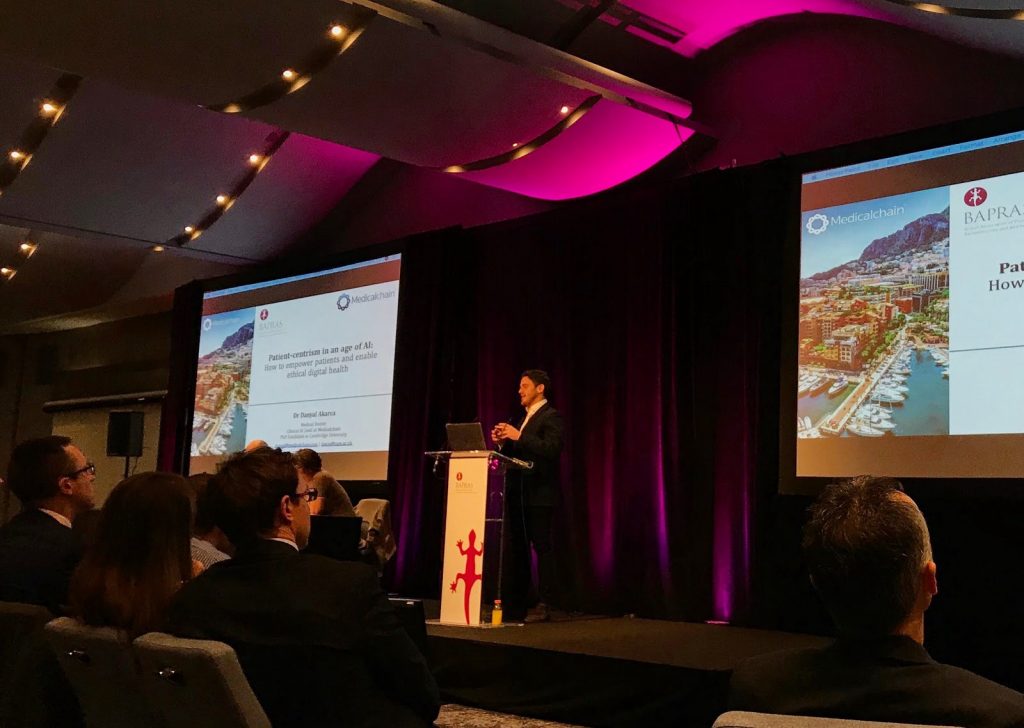
Finally, our CEO also joined other esteemed speakers at the Wellcome Trust Blockchain for Healthcare Academic-Stakeholder Workshop. Main themes of the day surrounded the legal, ethical, technical and governance challenges pertaining to the regulation of healthcare through blockchain.
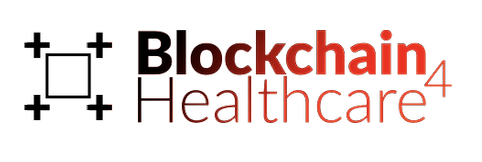
Upcoming Events
On the 10th December, our CEO will be visiting The Leeds University Union Cryptocurrency and Blockchain Society (LUUCABS) to give a talk about how the medical industry is being radically changed by blockchain technologies. Check out the tickets here.
Social Media
Thank you to everyone who has taken the time to ask us questions and engage with our communications team. If you have not had the chance to say hello yet, please click on one of the links!
Join a Medicalchain Community Today!
· Telegram (English)
· Telegram (Japanese — Medicalchain 日本公式コミュニティ)
· Telegram (Chinese — Medicalchain 官方中文群)
· Telegram (Italian — Medicalchain Italia)
· Telegram (Korean — Medicalchain 공식채팅방)
· Twitter (Japanese)
· Medium
· Youtube
Don’t forget to sign up for your free healthcare passport
The Medicalchain Health Passport signup is live! Prospective patients and medical practitioners can register their interest now, by clicking here.
Upcoming Issues
- About our formal launch of MyClinic.com with onboarding!
- Partnerships within the NHS and private sector
Thanks for reading the sixteenth newsletter of Inside Medicalchain. For more information on where to purchase our tokens (MTN), click here. Follow the development of Medicalchain on Facebook, Twitter, Instagram, and join the community on Telegram.

